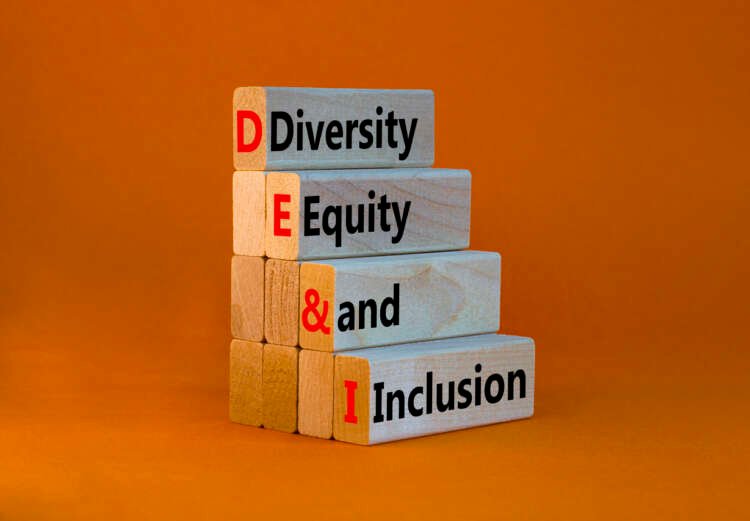Diversity, Equity & Inclusion Report from Heidrick & Struggles
Published by Jessica Weisman-Pitts
Posted on November 15, 2022
6 min readLast updated: February 3, 2026

Published by Jessica Weisman-Pitts
Posted on November 15, 2022
6 min readLast updated: February 3, 2026

Interview Q&A with Annalie Davies, Partner in Financial Services at Heidrick & Struggles Australia
What does Heidrick & Struggles’ recent diversity, equity and inclusion (DE&I) research identify about diversity in Australian companies?
Our new report, Employees at the Center: What It Takes to Lead on DE&I Now reveals that 56% of Australian executives said their DE&I efforts contribute to their business success to a large extent, a significant improvement from the 27% three years ago. The report also finds that Australian leaders view DE&I as a crucial part in their strategies, with 96% of Australian leaders viewing DE&I as more important now than at the beginning of 2020, compared to the global average of 93%.
Companies are continuing to progress in their approaches to DE&I efforts, where leaders are showing a strong and intentional commitment to clarity and culture in creating a systemic, whole-company focus on inclusion with a strong example set from leadership.
The most fundamental insight we take from our DE&I survey is that the connection between DE&I and business success is basic – every corporate leader wants to improve employee engagement, attraction, and retention, and these are the ways in which survey respondents most often saw their DE&I efforts contributing to business success.
What are the underlying factors contributing to an increased focus on DE&I?
Today, businesses are expected to step up and advance their DE&I efforts. This is likely to be driven by a shift in the role of corporations in society, together with a growing trust in governments to address DE&I, climate change, and geopolitical instability. Among Australian executives, 42% cite COVID-19 as the main reason behind the increased importance of DE&I. The financial services sector is no stranger to this, as the climate has pushed for more flexibility and a deeper dialogue around cultural diversity within the industry, pushing for more frequent and discernible conversations around inclusivity in the boardroom.
Through the events of the past few years, there is an increased amount of emphasis on employers to invest in DE&I practices, encouraging senior leadership in Australian businesses across different sectors to strive for inclusivity within the workplace. Some are even extending company-wide initiatives to include volunteering at non for-profit organisations and charities, to help underserved communities. It is a promising to see more companies committing to strategic DE&I initiatives, and promoting a more inclusive culture that will benefit their employees in the long-term.
What are some ways that companies can advance their DE&I efforts?
There are a number of ways companies, particularly within the financial services sector, can advance their DE&I efforts including:
What does the research reveal about the focus on inclusive leadership?
As companies have witnessed an increasing level of empathy and purpose driven initiatives, especially at the senior management level, there is a greater push for creating an inclusive workplace for employees. For instance, we have seen some divergence in sentiment across companies around enforcing a full return to office. Businesses will need to become more deliberate in creating a flexible, yet inclusive experience for its people.
Compared to other markets, the survey found that Australian companies seek a broader inclusion approach in their DE&I policies: 60% consider race and ethnicity as one of the top 5 characteristics to include in their DE&I criteria, 54% consider religion and age, and 52% consider parenthood or primary caregiver status and nationality.
Also deviating from global trends, 50% of Australian executives, including those within the financial services sector, believe that CEOs or business leaders should hold the main responsibility of DE&I strategies and goals, emphasising that employees should be able to hold the senior leaders accountable for the DE&I progress of their companies.
So just like how employees are looking towards business leaders to lead a more inclusive workforce, leaders are looking at engaged employees as the heart of a truly productive workforce, a critical connection between DE&I and business success.
How can employee inclusion help address talent shortages?
Leading companies are beginning to consider engaged employees as more central to their corporate culture than ever. In the midst of ongoing talent shortages, organisations will need to continue refining their strategies to ensure there is a strong commitment to whole-company inclusion as progress for DE&I become table stakes. Actionable solutions to tackle inclusivity challenges for specific industries are also needed. Among financial services organisations, for example, there is a demand for initiatives to retain female employees through better maternity policies. Staff across various banks also reportedly demand for more visible inclusion of indigenous and LGBTQ+ employees, presenting the opportunity for companies to expand on their DE&I policy during the recruitment process.
We have also seen a more open approach to welcoming international talent from a wider range of industries. To combat talent shortages, companies can look to bring in top talent from other markets and leverage initiatives that drive a more inclusive work culture to attract talent.
Implementing a company-wide rollout to ensure DE&I is embedded into the organisation’s culture, and a focus on inclusive leadership and tracking progress of strategies will be imperative next steps for best-in-class companies to stand out and attract people during this time of talent shortage.
Diversity refers to the presence of differences within a given setting, including race, gender, age, sexual orientation, and cultural background.
Inclusion is the practice of creating environments in which any individual or group can be and feel welcomed, respected, supported, and valued.
Employee engagement is the emotional commitment an employee has to their organization, which influences their willingness to contribute to its success.
Inclusive leadership is a leadership style that encourages diversity and fosters an environment where all employees feel valued and included.
Explore more articles in the Interviews category











